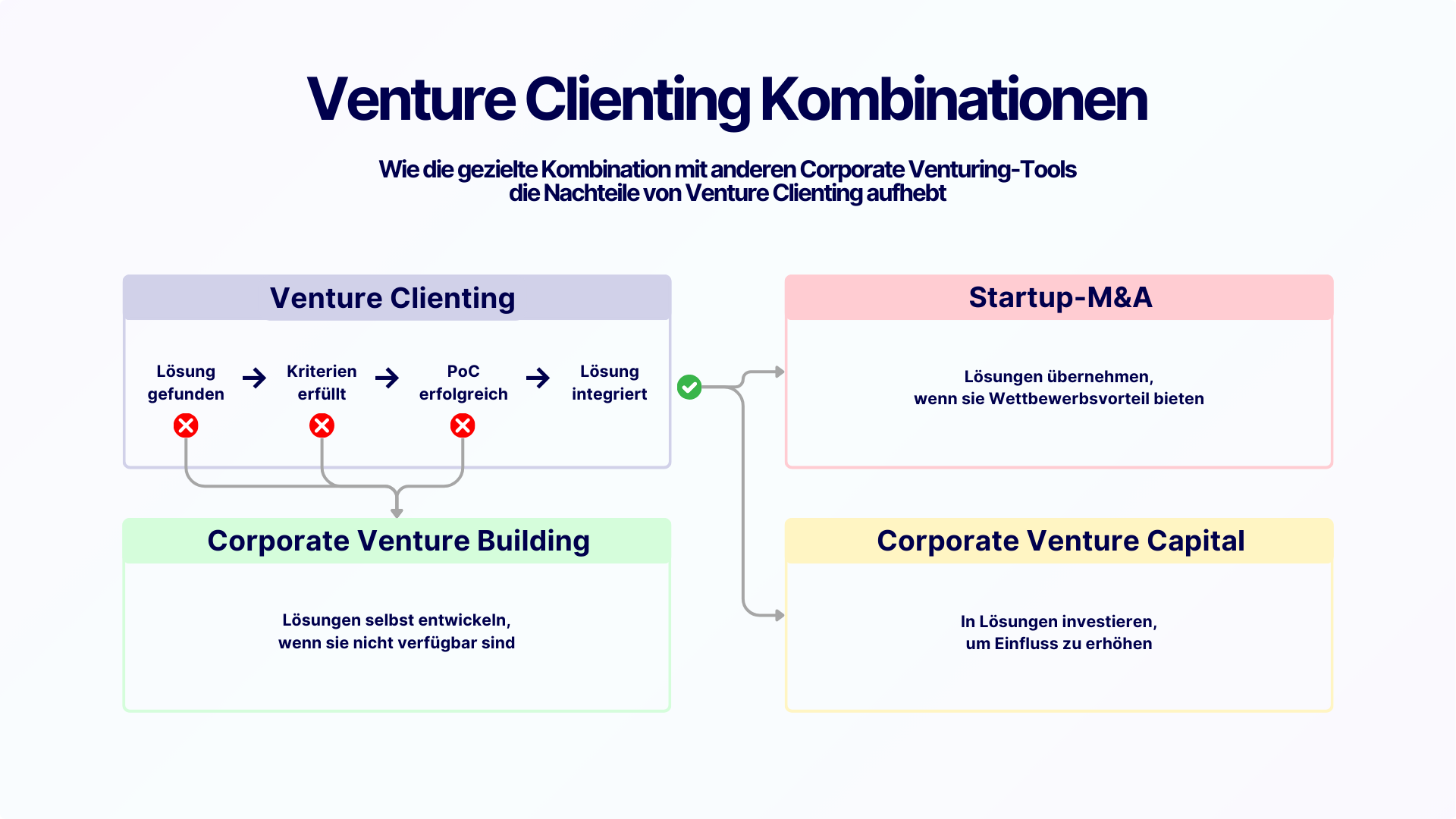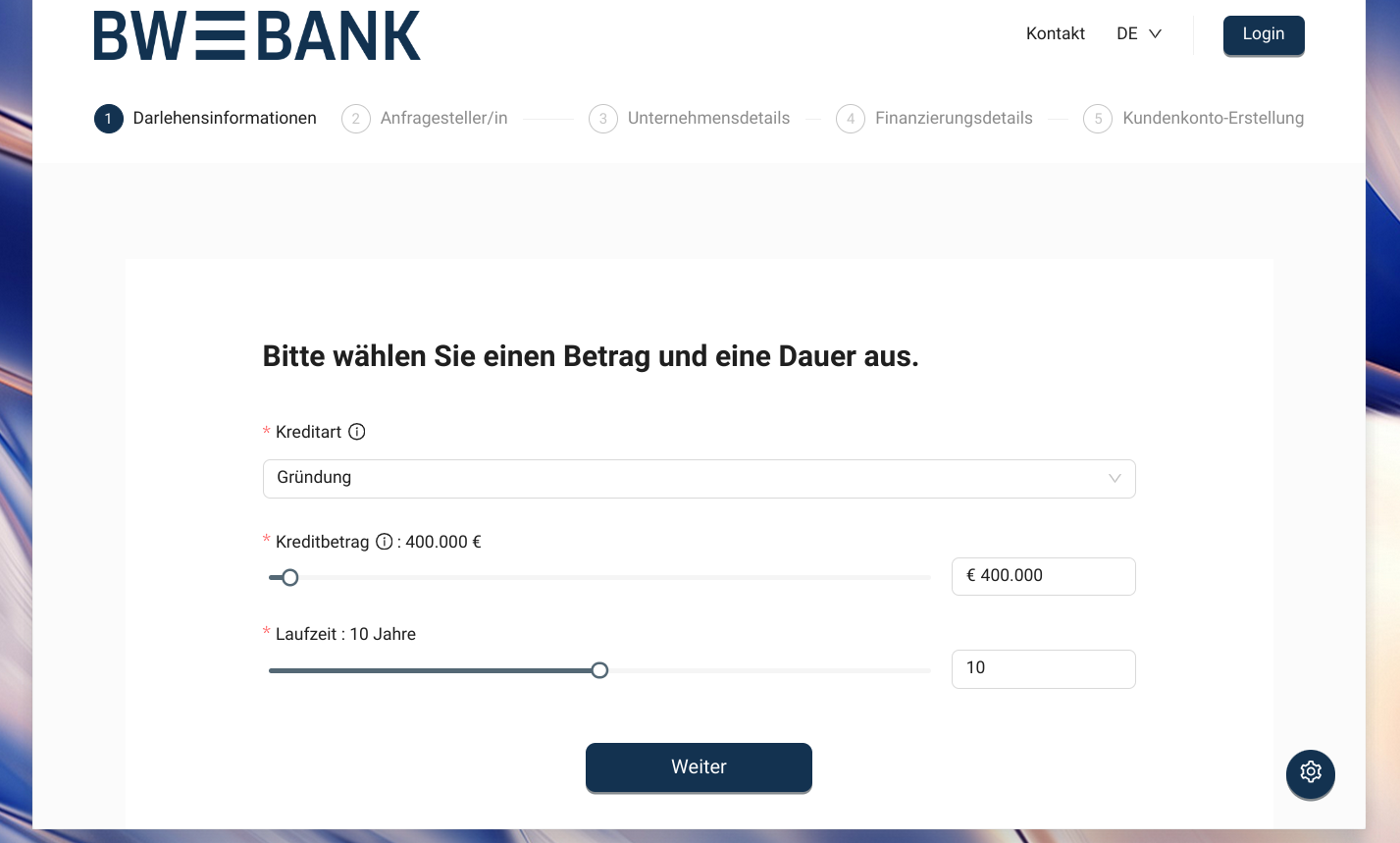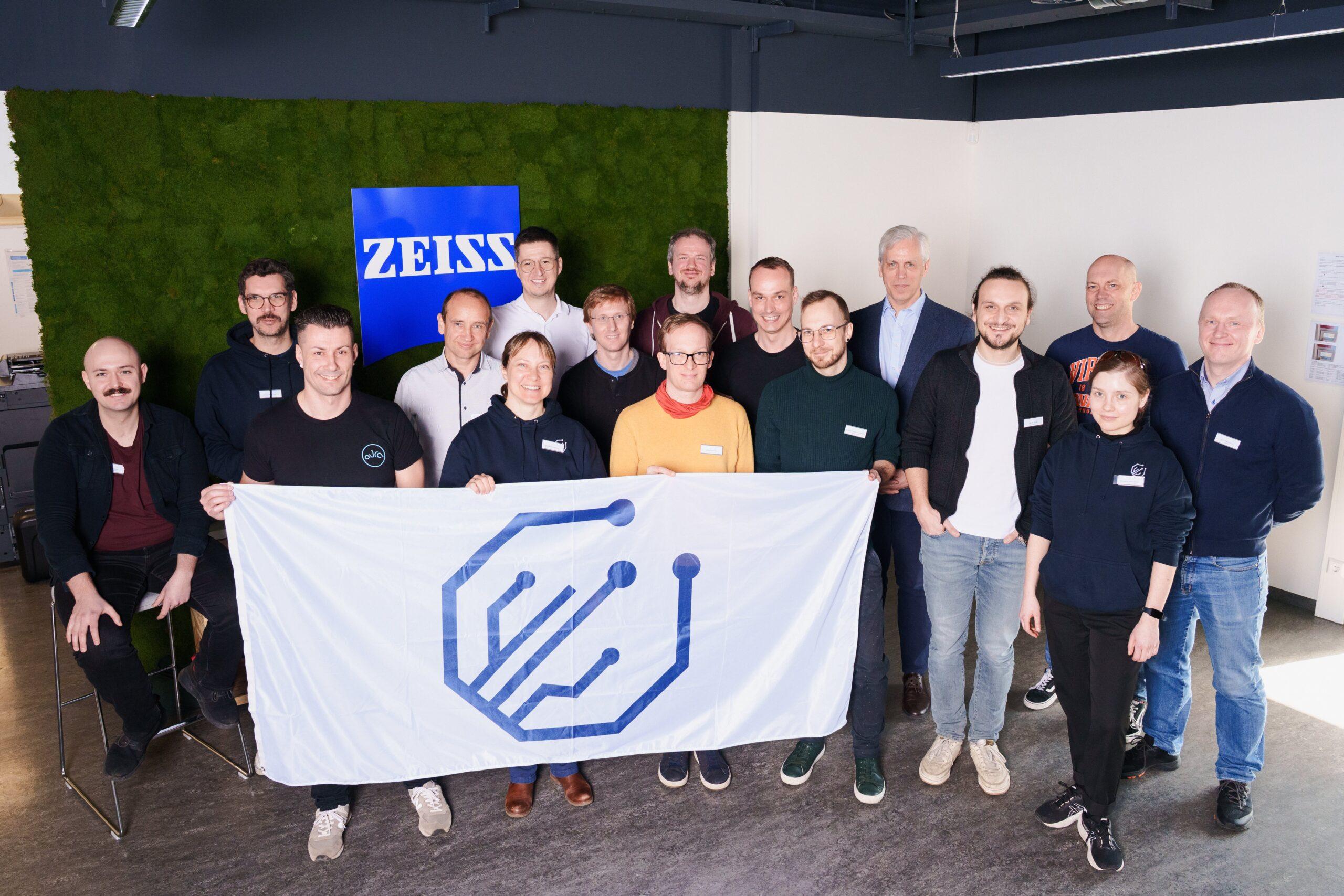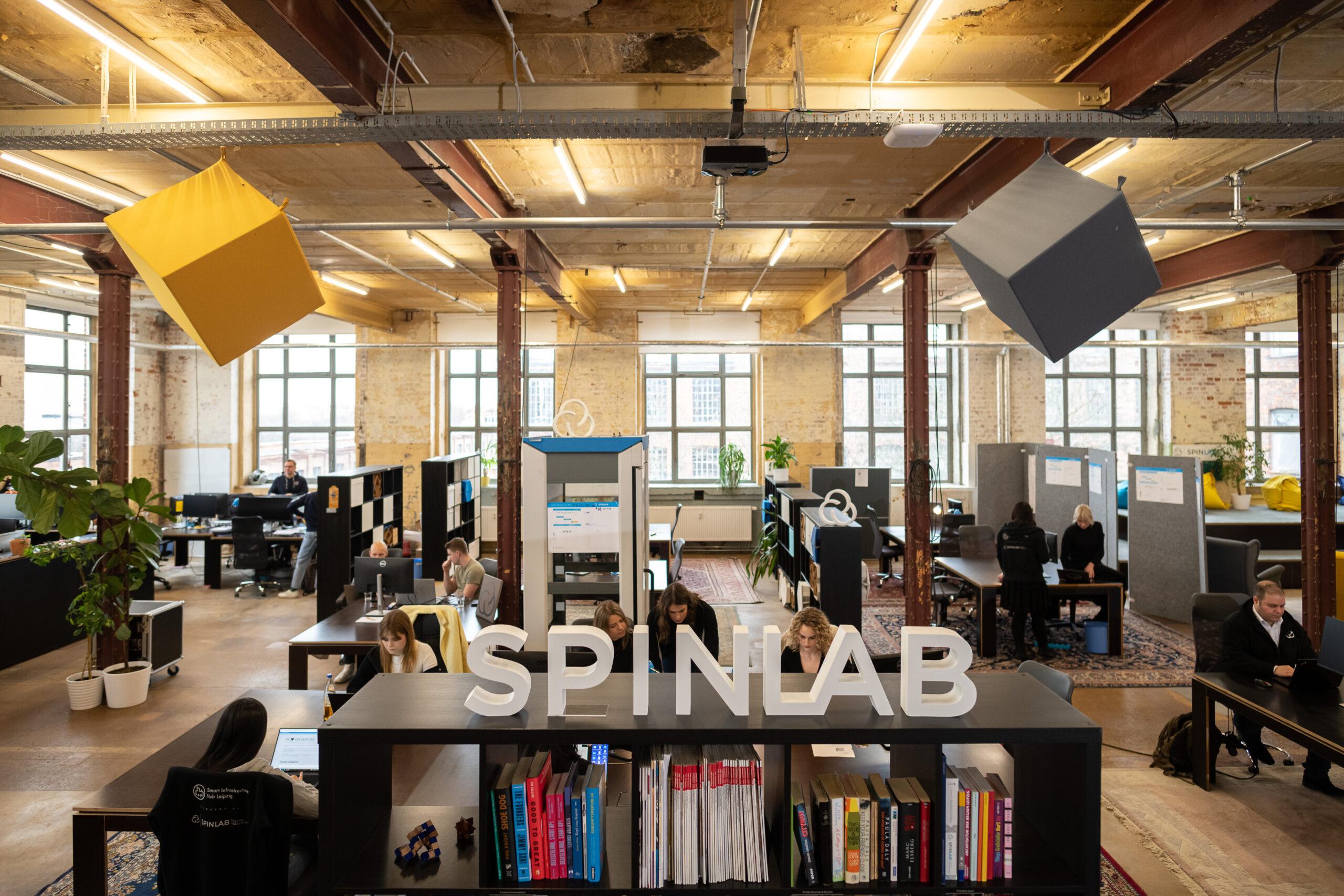No company can afford to ignore start-ups

Gregor Gimmy is considered a pioneer of the venture client model. In an interview with LBBW, he explains why working with start-ups is essential for technological progress and competitiveness.
"The need for good venture client models is not yet mainstream - but that is changing," says Gregor Gimmy, founder and CEO of 27pilots. Gimmy, who is regarded as a pioneer in the field of venture clienting, coined the term "venture client" back in 2014 as a manager at BMW and developed an innovative model that connects start-ups and established companies. As the brains behind the world's first corporate venture client unit, the BMW Startup Garage, he has made a significant contribution to enabling companies to benefit from the latest technological solutions. At LBBW, we have also set up our own Venture Clienting unit to strategically integrate innovative solutions from start-ups into the bank with measurable added value. In the first part of our interview series, we spoke to Gregor Gimmy about the idea behind his venture client model and its potential for the financial sector. The second part is about his vision for venture clienting for the global corporate landscape.
The importance of start-ups for corporate innovation is constantly increasing. At LBBW, we have recognized this need and established a dedicated Venture Client Unit. How do you see the future of corporate innovation and what role will the venture client model play in this changing environment?
The importance of start-ups is growing for the overall competitiveness of companies - and not just in the area of innovation. In other words, even companies without dedicated innovation departments, innovation strategies or R&D activities are increasingly benefiting from startups. The reason for this is that start-ups are essentially technology companies that frequently bring new and often disruptive technologies to the market. Technology is becoming a key competitive factor for all companies, whether in products, production, logistics, marketing and sales, human resources or IT.
One example: the IT of a company that wants to protect itself against cyber attacks will probably rely on start-up technologies. In 2022, around 18.5 billion US dollars of venture capital was invested in the development of new cybersecurity solutions, as established providers are often unable to offer all the solutions required. For example, if a company spends a million dollars on a specific cybertech solution, this budget is usually not accounted for as an "innovation budget". Let's say that company is a hospital - it probably doesn't have an innovation department, but it needs cutting-edge cybertech that is often only found in the startup ecosystem.
Precisely because startups are becoming increasingly relevant to the entire company beyond the innovation departments, it is becoming more and more important to build venture client units that can provide the entire company with relevant and unique startups.
Precisely because start-ups are becoming increasingly relevant for the entire company beyond the innovation departments, it is becoming more and more important to build venture client units that can supply the entire company with relevant and unique start-ups. These venture client units therefore need a model that identifies startup-relevant challenges beyond the innovation area and finds, validates and integrates the best startups into the company.
At LBBW, we pursue a "pull first" approach here. In short, we identify problems in collaboration with other departments and then look for the startup with the best solution. The biggest challenge is often to create the necessary commitment for implementation. One of the ways we work on this is by educating people about venture clienting and the added value of working with innovative start-ups and fintechs. Do you think that every company will have its own Venture Clienting unit in the future?
Although many - probably almost all - companies are already venture clients because they use startup technologies, only very few have defined or implemented a specific venture client model (see the 2023 State of Venture Client Report). This applies both in Germany and internationally. This means that startup products are either used informally or formally, but without a specific venture client model. For example, which company or its employees have not yet used the product of the startup OpenAI? In these cases, startup products are sourced via generic functions such as normal purchasing or startups are acquired via generic M&A processes.
In the future, the introduction of specific venture client models will increase, as companies can achieve strategic advantages through first-class startups more effectively and quickly. Generic processes are less promising as they are not designed to create value with top start-ups. With these generic approaches, a large part of the potential value creation often remains untapped: Relevant problems are less likely to be recognized, the best startups are not identified and the technologies are only used to a limited extent - which often "kills" the strategic advantage.
What indications do you see that the trend towards venture clienting is increasing?
The need for good venture client models is not yet a mainstream topic in boardrooms or business schools, either nationally or internationally. But that is changing. One indication of this is the BMW Startup Garage Case at INSEAD Business School, which has become a bestseller and is taught worldwide. The recognition of the BMW/27pilots Venture Client Model as an "Emerging Innovation Practice" by Gartner also shows that Venture Clienting is increasingly being recognized as an important practice. In the future, no company will be able to afford to ignore start-ups - regardless of whether it is a global corporation, a medium-sized family business or a micro-enterprise with less than 100 employees. Startups themselves are also often active venture clients, as they make intensive use of startup technologies to develop their products faster (e.g. GenAI for coding) and to make their processes as efficient as possible (such as Personio for HR).
"Don't ignore" means that companies need to specifically find and use startup technologies whenever they offer the best solution to a relevant strategic challenge. This means that every company will engage in some form of venture clienting, but adapted to its own size and needs. A company with 100 employees will not have a dedicated unit with 25 FTEs, but it can ensure that at least one person is trained in venture client methods or that a person with venture clienting experience is hired.
For anyone interested in venture clienting, I recommend my book Buy, Don't Invest: The Venture Client Model - A Paradigm Shift in Corporate Venturing. In it, I explain why and how the venture client model came about and what significance it has for start-ups, companies and society.
Thank you for the interview!
Click here for the first part: The Venture Clienting Visionary - Interview with Gregor Gimmy
More about this
Venture Clienting

Newsletter
Startups, stories and stats from the German startup ecosystem straight to your inbox. Subscribe with 2 clicks. Noice.
LinkedIn ConnectFYI: English edition available
Hello my friend, have you been stranded on the German edition of Startbase? At least your browser tells us, that you do not speak German - so maybe you would like to switch to the English edition instead?
FYI: Deutsche Edition verfügbar
Hallo mein Freund, du befindest dich auf der Englischen Edition der Startbase und laut deinem Browser sprichst du eigentlich auch Deutsch. Magst du die Sprache wechseln?





















